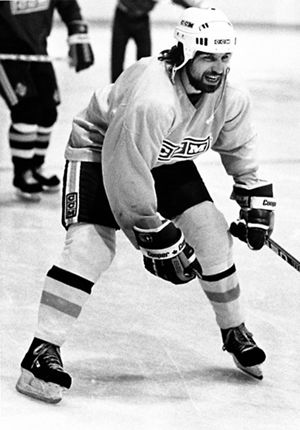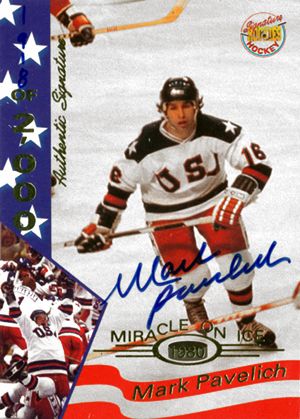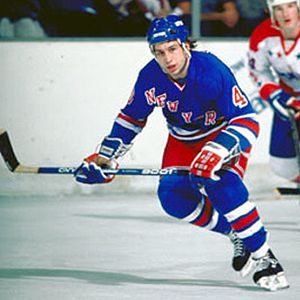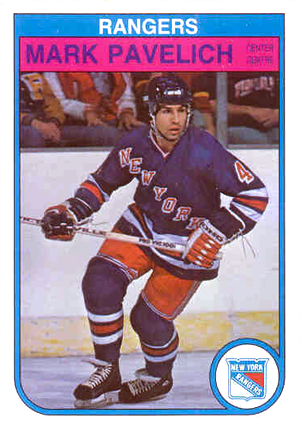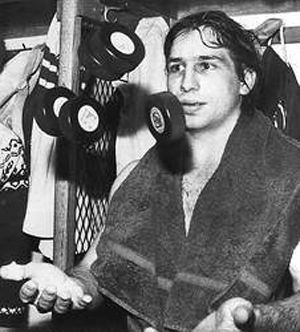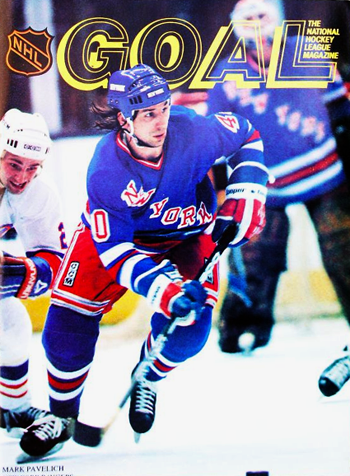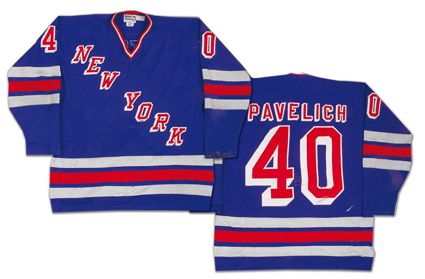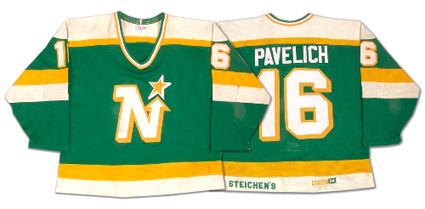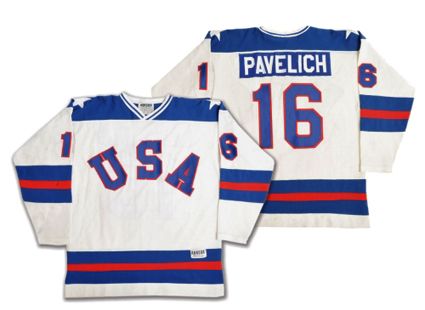Saturday, September 11, 2021
2000-01 FDNY Hockey Team Ray Downey Jersey
Ray Downey was the Fire Department of New York's Chief of Special Operations and a passionate New York Rangers fan and founding member of the FDNY Hockey Team.
He served with the United States Marine Corps and then became a member of the Fire Department of New York (FDNY) on April 7, 1962, beginning a 39-year career. In August of 2001, Chief Downey was put in charge of Special Operations Command, a team of specialists who aid regular firefighters with unique or highly critical situations, which include Hazardous Materials, Marine Units, Rescue Companies (experienced units with specialized tools and equipment) and Squads, often regarded as mini Rescue Companies who also have specialized tools and equipment. Downey was also promoted to Deputy Chief at the time.
His career was built on numerous successful rescues which made him the most decorated man in the history of the FDNY. He received five medals for valor and 16 unit citations as well as the 1995 Administration Medal.
Additionally, Chief Downey was a task force leader for the New York City Urban Search and Rescue Team as well as the National Disasters Team, who responded to both the Oklahoma City and Atlanta Olympics bombings. He was also a team leader in response to Hurricanes Hugo, Andres, Fran, Marilyn and Opal, Chief of Rescue Operations at the World Trade Center bombing in 1993, all of which contributed to his being called "a charismatic national legend in rescue circles" and he was credited with creating the modern search-and-rescue system adopted by FEMA and fire departments worldwide while pioneering a national network of eight search and rescue teams under FEMA.
He also made frequent trips to Washington D.C. while serving on a congressional panel on domestic terrorism and it's prevention.
All of this led to Downey commanding rescue operations at the World Trade Center on September 11, 2001 following the terrorist attacks earlier that morning when hijacked jetliners were crashed into each of the twin towers.
His unit was called in immediately after the first impact at #2 World Trade Center and he was leading the rescue operations which helped save thousands of lives when the second of the towers collapsed, costing him his life.
He left behind his wife Rosalie and five children, two of whom, Joe and Chuck, are now firemen.
It would take eight months after 9/11 for his remains to be identified through DNA testing before Chief Downey was then laid to rest on May 20, 2002.
When once asked asked why he searched so long for remains of those presumed dead, he cited the families of those left behind. "The only way you can relieve some of their sorrow," he said, "is to successfully recover the bodies of the people they loved."
Of the 343 firefighters lost on 9/11, Special Operations Command lost a total of 95 men with 1,600 years of experience that day.
Ray Downey's life and career are commemorated with The Ray Downey Courage and Valor Award, which is presented each year to an extraordinarily courageous American firefighter.
Following the terrorist attacks in September, 2001 the New York Rangers and Buffalo Sabres faced off in the Rangers first home game of the season on October 7th. Both the Rangers and Sabres wore special jerseys with "New York" diagonally across the front. Following the game won by the Rangers 5-4 in overtime, both sets of jerseys were auctioned off to raise money for the Twin Towers Fund.
Prior to the game the NYPD and FDNY hockey teams lined up on the ice and the Rangers skated between them during their introductions. FDNY team member Larry McGee had brought his firefighters helmet with Ray Downey's picture tucked into the brim of the helmet. He noticed that of all the players, only Rangers captain Mark Messier had not worn his hockey helmet during the pre-game ceremonies.
As the Rangers were lined up at the blueline, McGee sensed the moment was right and skated over to Messier with the helmet and told him it would be an honor if he would wear it. Messier responded, "Sure, whatever you need" and donned the helmet with the photo of the still missing Downey in it as the Madison Square Garden crowd roared its approval.
Mark Messier wearing Larry McGee's helmet prior to the Rangers first home game following the 9/11 terrorist attacks. Note the special "New York" crested jersey worn only for that game.
"For me, personally, it was very emotional for a lot of reasons," said Messier, "Obviously, with all the people being honored - the firefighters, the police, the rescue workers, the volunteers, the entire city - and all our fans. All on a day when we started fighting back as a country."
At the end of that same season, Messier presented his #11 jersey to the family of Ray Downey during the Rangers annual Blueshirts off our Backs night on April 10, 2002.
The FDNY Hockey Team was first formed back in 1968 and played its first game against the New York Police Department in 1974 and the FDNY Hockey Team now competes in charity events and tournaments from Alaska to Sweden as well as hosting the FDNY "King of the Ice" Firehouse Tournament, where for over 15 years nearly 100 different firehouses compete for the championship in the largest tournament of its kind.
The main event on the FDNY Hockey Team calendar is always their annual faceoff against the New York Police Department (NYPD) game as the FDNY Bravest take on the NYPD Finest in "The Battle of the Badges". To date, 47 games have been played with the FDNY holding a 26-18-3 lead in the series.
Today's featured jersey is a 2000-01 Fire Department of New York Hockey Team Ray Downey jersey. This jersey takes the classic simplicity of a jersey very similar to the New Jersey Devils and combines it with the timeless look of the drop shadowed New York Rangers cresting and numbers to create as perfect a hockey jersey as you will ever see.
Of note, none of the players wore their individual names on the back of their jerseys, and instead they all had their team nickname "Bravest" on the back in place of their names, similar to Team Canada in the 1972 Summit Series when they all had "Canada" on the back.
Chief Downey's jersey #9 was retired by the FDNY Hockey Team during a pre-game tribute at the March 2, 2002 FDNY vs. NYPD hockey game.
Rosalie Downey receives Chief Downey's retired
jersey before the FDNY vs. NYPD game in 2002
While this style jersey has been retired, you can get the special 20th Anniversary FDNY Hockey Team jersey through the above link.
Please take a moment to visit the Deputy Chief Raymond Downey Scholarship Charity Fund, at ChiefRaymondDowney.com, which holds the annual Forever Running Memorial 5K Run/Walk each Father's Day to benefit the organizations he supported, and consider making a donation to the fund. Information on how to contribute can be found by clicking the banner below.
The Rescue Company, written by Chief Ray Downey, a how-to manual on rescue operations for firefighters in both paperback and hardcover, as well as his instructional video on collapse rescues are available below.
The Last Men Out, written by Ray Downey's nephew Tom Downey, is about Rescue 2, the firehouse Ray Downey commanded for fourteen years. Rescue 2 doesn't leave a fire until everybody's safe - they're the last men out.
Labels:
9/11,
Downey Ray,
FDNY Hockey Team,
Messier Mark,
New York Rangers
Saturday, March 6, 2021
1982-83 New York Rangers Mark Pavelich Jersey
Hailing from the Iron Range in northern Minnesota, Mark Pavelich, born on this date in 1958, attended the University of Minnesota Duluth beginning in 1977-78. His progress was pronounced, as he scored 12 goals and 19 points his first season, 14 goals and 44 points his second (third on the club) and leapt up to 31 goals and 79 points to lead the team in 1978-79.
Bonus jersey: Today's bonus jersey is a 1986-87 Minnesota North Stars Mark Pavelich jersey as worn during his brief stay with his home state North Stars, where he was reunited with coach Brooks for the third time in his career.
Extra bonus jersey: Today's extra bonus jersey is a 1980 United States Mark Pavelich jersey. This style, with "USA" diagonally across the front was worn during the 1980 Olympic Team's pre-Olympic schedule of games played against an assortment of minor league, college and other national teams in preparation for their participation in the Olympics. During the Games, they wore a new set of jerseys with the "USA" cresting now arched across the front.
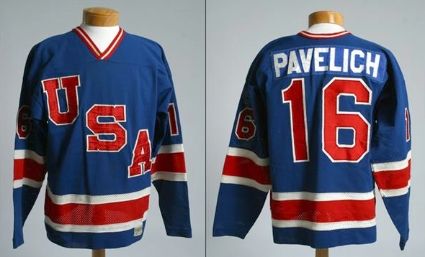
Extra extra bonus jersey: Today's extra extra bonus jersey is a 1980 United States Olympic Team Mark Pavelich jersey. After 32 years with only Mark Wells' blue and white Miracle on Ice jerseys becoming available to collectors of game worn jerseys, 2012 saw Ken Morrow auction off his Miracle jersey for $104,328 and 2013 had Eruzione parting with both is blue ($286,800) and white jersey, which sold for $657,250, considerably less than it's $1,000,000 pre-sale estimate.
Pavelich's white jersey, worn when he assisted on Eruzione's game winning goal against the Soviet Union, was also put up for auction at the same time as Eruzione's jerseys. The final highest bid for the Pavelich jersey was $116,203, and with the 19.5% buyer's premium added on, the final selling price rose to $138,863. That exceeds the final price of Ken Morrow's Miracle on Ice jersey, which sold for $104,328, by $34,534.
Today's video is Pavelich setting up Eruzione's game winning goal in the Miracle on Ice.
Pavelich while with Minnesota Duluth
His creative "rink rat" style of play caught the eye of head coach Herb Brooks who who named Pavelich to the 1980 United States Olympic Team, where he teamed with UMD Bulldogs teammate John Harrington and fellow northern Minnesota native Buzz Schneider in a line that became known as the "Coneheads".
"It was kind of unique, obviously, growing up playing hockey in Eveleth," Pavelich recalled. "I was fortunate enough to have the rink just a couple of blocks say, It was just nonstop hockey. I was always down at the rink."
During the 53 games leading up to the Olympics, Pavelich scored 45 points and during the seven games of the Olympic tournament, he averaged a point per game, with one goal and six assists, including his assist on the opening United States goal scored by Schneider and the critical first assist, earned by sending the puck into the slot despite facing and moving the opposite direction while falling backwards, where it was gathered by Mike Eruzione, who then scored the game winning goal in the "Miracle on Ice" upset over the Soviet Union, later named the top story in the IIHF's first 100 years.
Undrafted by any NHL club, certainly in part due to his 5' 8" size, Pavelich took his game to HC Lugano in Switzerland, where he racked up 73 points in 60 games before once again putting on the red, white and blue of the United States at the 1981 World Championships.
Meanwhile, back in the United States the pairing of his Olympic coach Brooks and his assistant Craig Patrick, was reunited when Patrick hired Brooks to be the head coach of the New York Rangers. They brought Pavelich back to the United States and reunited him with not only Brooks, but also former US teammate Dave Silk and later Rob McClanahan.
Pavelich took to the NHL right off the bat, finishing third in team scoring with 33 goals and tying for second in points with Ron Dugay at 76. The following season Pavelich rose to second in team scoring with a nearly identical 75 points while raising his goal total to a team leading 37, which included a record setting game against the Hartford Whalers in 1983.
In that game, Pavelich opened the scoring with a power play goal just 1:17 into the contest. Vaclav Nedomansky banked another power play goal for the Rangers less than a minute later at 2:15. After the teams traded goals two minutes apart later in the period, the Rangers began to pull away with goals by Swede Kent-Erik Andersson at 18:36 and Pavelich's second goal, again on the power play with just ten seconds remaining in the period to give New York a commanding 5-1 lead after the first period.
Barry Beck stunned the Whalers just nine seconds into the second period before Pavelich completed his second career hat trick at the 9:06 mark. Mike Rogers made it 8-1 Rangers two minutes later. Pavelich's former 1980 teammate Mark Johnson stemmed the tide with a goal for the Whalers at 12:52 before Ed Johnstone's goal for the Rangers and Michel Galarneau's for Hartford made it 9-3 for home team after two.
But there was still more yet to come, and in surprising, record setting fashion, for at 8:40 of the third period Pavelich scored his fourth goal of the night, from Tom Laidlaw and McClanahan, followed by his fifth goal of the game from Laidlaw just 11 seconds later, making Pavelich the first American-born player in the 66 year history of the NHL to score five goals in a game. His feat also equaled the Rangers team record set by Don Murdoch in 1976-77.
"As a pro, this is my most memorable game," he said afterwards.
Pavelich shows his five goal pucks to the media
following his record setting performance
In 9 playoff games that season, "Pav" set a career best with 4 goals and 9 points in 9 games.
While his goal total dropped from 37 to 29 the following season, he set a career high with 82 points thanks to his 53 assists in 1983-84.
1984-85 was a season of change, as Brooks was fired as the Rangers coach after 45 games and Pavelich himself was limited to just 48 games himself, although he still maintained a nearly a point per game average with 45.
With Brooks gone, Pavelich's days in New York were numbered, as he was uncomfortable and unaccustomed to playing the traditional NHL "dump and chase" style of new Rangers coach Ted Sator and retired at the end of the season after playing 59 games, scoring 20 goals and 40 points.
He was happy to return home to the simple life of hunting and fishing, only to be called on by Brooks once more, who had now taken over as the head coach of the Minnesota North Stars. It was a short-lived reunion however, as Pavelich would only play a dozen games for the North Stars in 1986-87, although they were productive ones, with 4 goals and 10 points. The record shows that later that season he suited up for the Dundee Rockets in the British Hockey League for a single game, being credited with a pair of assists.
While now done with the NHL, he was not quite finished with hockey just yet, finding a home with HC Bolzano in Italy beginning with the 1987-88 season, where he teamed with former North Stars teammate, Swede Kent Nilsson. There, Pavelich scored nearly a goal per game, with 31 goals in 36 games on his way to 73 points, more than two points per game. That was not all, as Bolzano went on to win the league championship that season, which included Pavelich's 9 goals and 20 points in just 8 playoff games.
He returned to Bolzano for another season in 1988-89, adding 23 goals and 57 points in 44 games before he retired once again.
But not for good.
With the league expanding in 1991, Pavelich was lured out of Minnesota one final time by the expansion San Jose Sharks, where he recorded an assist on the Sharks first ever goal on October 4, 1991. His return was very brief however, as he would only play two games before retiring, this time for good.
His final NHL totals were 355 games played, 137 goals and 192 assists for 329 points , with another 7 goals and 24 points in 23 playoff games.
Pavelich remains to this day a unique individual, who shuns the spot light of fame accorded to the 1980 Olympic Team, rarely leaving the comfort of home in the woods of Minnesota for reunions, interviews or personal appearances, unlike the always available Eruzione, who is often kidded that he has made a career out of one goal and has never met a microphone he didn't like. "The past is the past," Pavelich has been quoted as saying.
It would take 22 years before Pavelich joined his 19 teammates for a reunion, this coming at the the 2002 NHL All-Star Weekend. "It was just that time," Pavelich said when asked why he had chosen that weekend to rejoin his teammates.
His wife Kara said of his reputation, "I know Mark is often said to be reclusive, but that's overdone. He has a very large circle of friends." when Mark was inducted into the Duluth Entertainment and Convention Center Athletic Hall of Fame (the former home of the UMD Bulldogs) in 2006.
Today's featured jersey is a 1982-83 New York Rangers Mark Pavelich jersey from the season during which he became the first American-born player in NHL history to score five goals in one game.
The Rangers had worn a variation of their traditional blue sweaters with "Rangers" diagonally since their inception in 1926 almost without exception until a change to a new modern style in 1976-77, which lasted only one more season until they went back to their traditional look in 1978-79, only with one major difference, as "New York" had now replaced "Rangers" across the front of their classic blue jerseys for the first time ever.
This style would last for Pavelich's entire stay in New York, lasting through the 1986-87 season until a return to "Rangers", which remains through today.
photo courtesy of Classic Auctions
Bonus jersey: Today's bonus jersey is a 1986-87 Minnesota North Stars Mark Pavelich jersey as worn during his brief stay with his home state North Stars, where he was reunited with coach Brooks for the third time in his career.
Extra bonus jersey: Today's extra bonus jersey is a 1980 United States Mark Pavelich jersey. This style, with "USA" diagonally across the front was worn during the 1980 Olympic Team's pre-Olympic schedule of games played against an assortment of minor league, college and other national teams in preparation for their participation in the Olympics. During the Games, they wore a new set of jerseys with the "USA" cresting now arched across the front.
This jersey was auctioned off by Lelands.com in December of 2004 and sold for $4,969.87.

Extra extra bonus jersey: Today's extra extra bonus jersey is a 1980 United States Olympic Team Mark Pavelich jersey. After 32 years with only Mark Wells' blue and white Miracle on Ice jerseys becoming available to collectors of game worn jerseys, 2012 saw Ken Morrow auction off his Miracle jersey for $104,328 and 2013 had Eruzione parting with both is blue ($286,800) and white jersey, which sold for $657,250, considerably less than it's $1,000,000 pre-sale estimate.
Pavelich's white jersey, worn when he assisted on Eruzione's game winning goal against the Soviet Union, was also put up for auction at the same time as Eruzione's jerseys. The final highest bid for the Pavelich jersey was $116,203, and with the 19.5% buyer's premium added on, the final selling price rose to $138,863. That exceeds the final price of Ken Morrow's Miracle on Ice jersey, which sold for $104,328, by $34,534.
Labels:
Minnesota North Stars,
New York Rangers,
Pavelich Mark,
USA
Subscribe to:
Posts (Atom)
